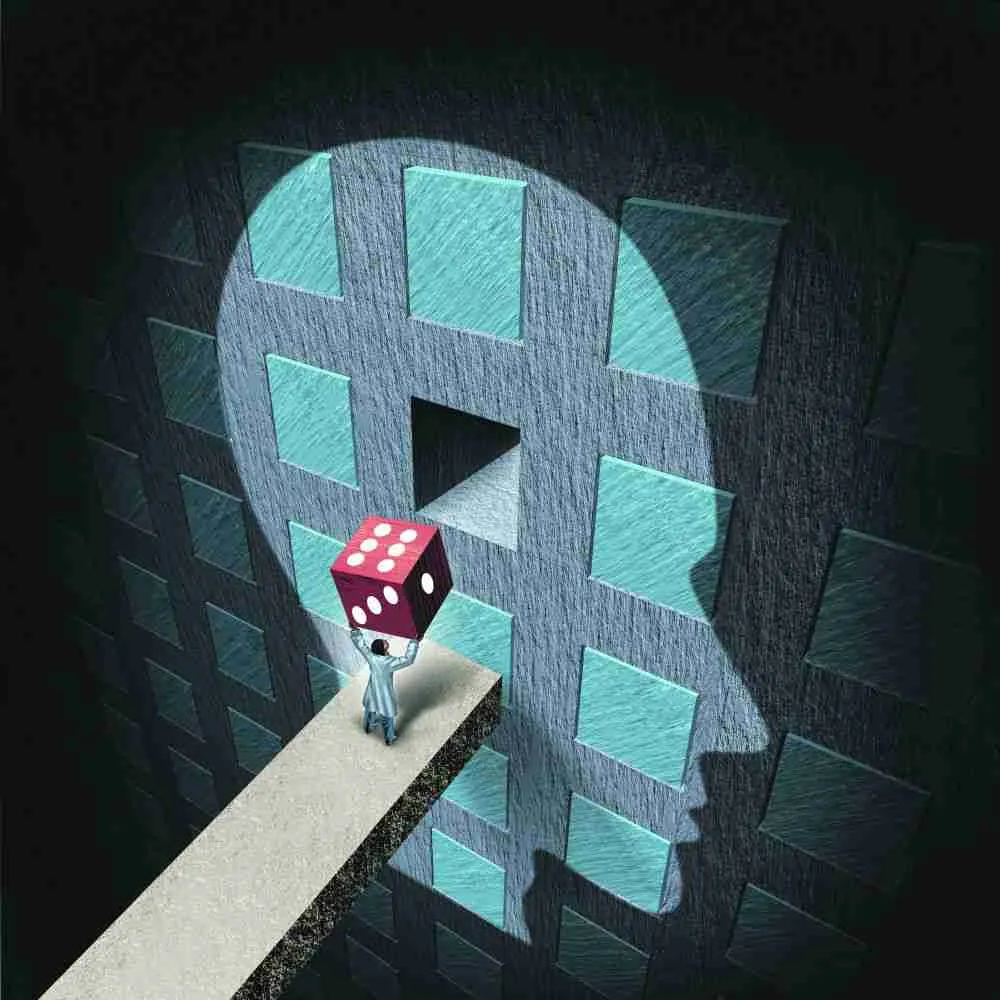Gambling can be an enjoyable pastime, but when gambling becomes an obsession it can lead to financial strain, relationship strain and criminal acts. Problem gambling has recently been included as a behavioral addiction in the Diagnostic and Statistical Manual of Mental Disorders.
Studies show that when we win money, our brain releases dopamine – a neurotransmitter linked to enjoyable activities like eating, sexual encounters and drugs – which makes us feel good. But what draws us to gamble in the first place?
The Illusion of Control
While many gamble for entertainment purposes, some individuals develop an unhealthy addiction known as pathological gambling which can have disastrous personal and financial repercussions. Pathological gambling may lead to psychological or emotional problems as well.
Psychologists have conducted extensive studies on why certain gamblers become addicted to gambling. They have discovered that this addiction shares many similarities with drug dependence in terms of neurochemical processes as well as rewards and arousal systems.
Understanding why some individuals may become pathological gamblers is crucial to protecting them and those around them from harm caused by gambling addiction. One key factor is illusion of control – which refers to the belief that one has some control over a random process such as gambling.
The Bandwagon Effect
Studies have demonstrated that people who gamble are heavily influenced by those around them. Instead of exercising independent judgment and making well-informed choices themselves, many follow suit and make hasty, misinformed decisions as a result of peer pressure.
This phenomenon, known as the bandwagon effect, can have an enormous influence on politics and consumer spending. Many voters choose a popular candidate or purchase products because everyone else seems to do it.
Studies show that teenagers’ brain regions involved with decision making take longer than expected to develop, which makes them more prone to gambling and risk taking. Researchers are investigating genetic predispositions to compulsive gambling – just like drug addiction, compulsive gambling can have serious psychological, personal, professional and financial repercussions.
Positive Moods
Gambling can be an enjoyable and harmless activity; however, for some it can quickly become addictive and lead to financial losses and damaged relationships.
Dr Luke Clark of Cambridge’s Department of Experimental Psychology is using brain imaging technology to study patterns of activity in volunteers playing gambling games, with particular attention paid to how features like near misses, personal choice and reward uncertainty promote an illusion of control in participants.
Research suggests that mood affects risk taking and that its influence can be mitigated by dispositional optimism; however, most studies to date have only tested American and European participants; future work should examine how mood and optimism vary with nationality and culture.
Genetics
Gambling may seem harmless enough at first glance, but compulsive gamblers could become easily addicted and suffer dire repercussions for their relationships, finances and physical wellbeing.
Genetic studies have linked pathological gambling with specific allele variants of dopamine receptor genes, suggesting it’s a genetic predisposition towards reward seeking and impulsivity. People who exhibit this trait also tend to have underactive reward circuitry as well as low activation of their prefrontal cortex which regulates impulses and decisions-making processes.
Gambling can quickly become an addiction for those who believe certain rituals will increase their odds or that betting more can compensate for bad luck. Cognitive Behavioral Therapy (CBT) can assist by challenging these beliefs and altering how individuals view gambling.
Culture
Gambling’s reward uncertainty can release dopamine, increasing one’s appetite to take risks. Uncertainty also plays a part in why some individuals become compulsive gamblers; as they seek thrills even though their odds of success may be slim.
Most gamble for enjoyment or thrills of excitement; however, for a small percentage of individuals this isn’t enough and they develop gambling issues which have serious repercussions in terms of personal, professional, family and financial health.
Though once widely disapproved of, gambling addiction has now become widely recognized as a legitimate mental illness. With increased access to casinos, psychologists fear more people may develop gambling issues; already there has been an upsurge in calls made for helplines across the nation.

